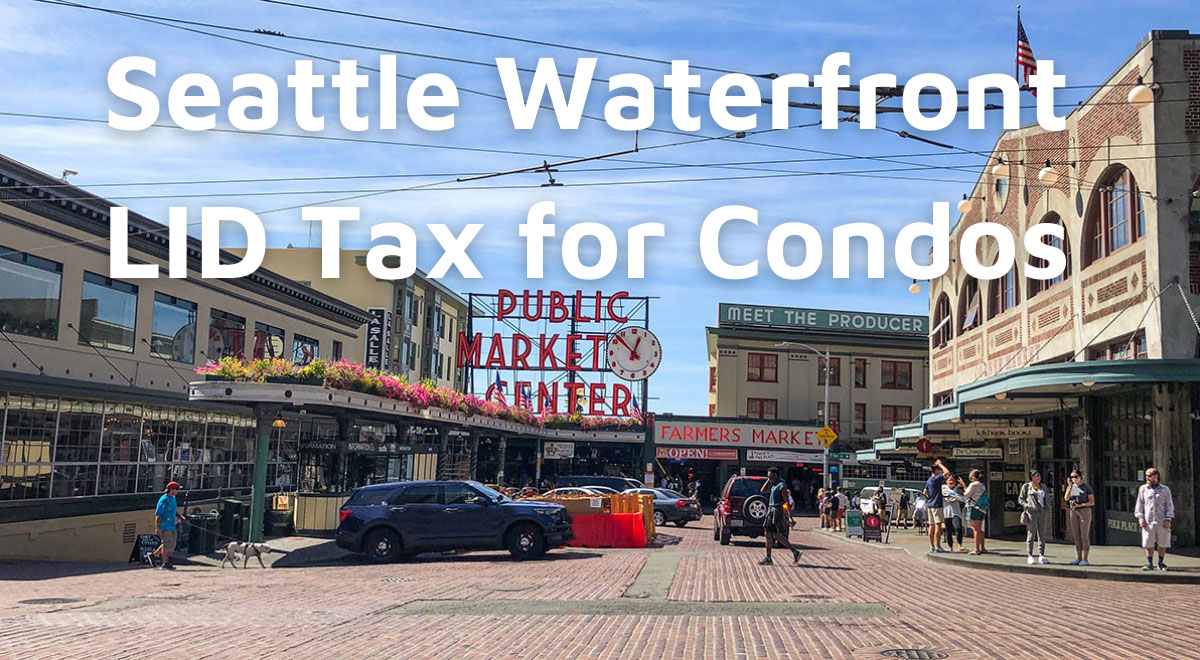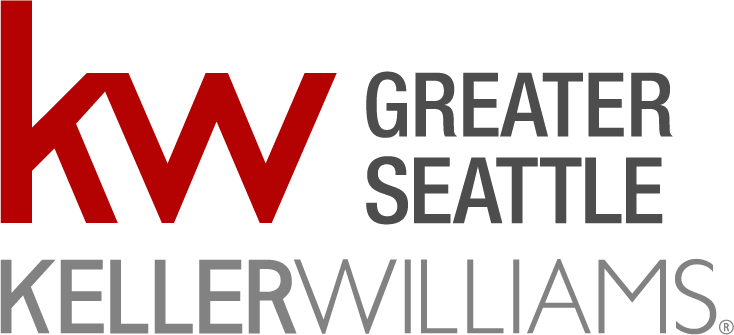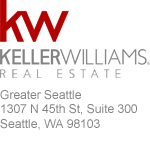Seattle Waterfront LID Assessment Tax

The long debated local improvement district (LID) assessment tax on downtown area condos finally become a reality when the Seattle City Council passed the ordinance authorizing the LID tax and payment plan on June 14, 2021.
What is the Seattle Waterfront LID?
The LID came about as a means to facilitate the financing of the redevelopment of Seattle’s waterfront, an ambitious $737 million project to connect downtown to the waterfront following the removal of the Alaskan Way Viaduct. The project has several major components:
- The Promenade – an open space along Alaskan Way from Pine Street to King Street
- The Overlook Walk – an elevated walkway connecting the Pike Place Market to the waterfront
- Pioneer Square Street Improvements – street improvements and creating a pedestrian friendly link between Pioneer Square and the waterfront
- Union Street Pedestrian Connection – walkway and elevator connecting Union Street to Western Ave to the waterfront
- Pike/Pine Streetscrape Improvement – pedestrian improvements along Pike Street and Pine Street from Capitol Hill to the waterfront
- Waterfront Park – rebuilding the pier park on the waterfront next to the Seattle Aquarium
Funding for the waterfront redevelopment and improvement comes from several sources including the city, state, private donors and through businesses, commercial properties and condo owners in downtown area.
The Seattle Waterfront LID is a special property tax assessment upon the businesses and property owners who receive a “special benefit” as a result of the improvements by virtue of their location surrounding the waterfront. Yet, the boundary of the LID extends quite a bit from the waterfront.

How much is the LID assessment for condo owners?
The final total amount of Seattle Waterfront LID is $174 million that is being assessed upon condo owners and commercial & business entities who’ll pay the majority of the tax assessment.
Although condo owners as a group make up a smaller portion of the $174 million, the amount owed by individual unit owners can vary widely. The assessment amount is combination of condo unit’s assessed property value and the zone the building is located in. Properties located closest to the waterfront are in a higher rate zone compared to those located on the edge of downtown.

For example, unit owners at the ultra luxurious Four Seasons Private Residences situated just above the waterfront can expect assessments ranging from $16,000 to over $138,000. Though at a more mid-tier condo located on Alaskan Way such as the Waterfront Landings the assessments are predominately in the $5,000 to $10,000 range. Still a pretty good chunk of change.
On the other hand, units at the 2200 Westlake complex, located the furthest away from the waterfront has assessments in the $200 to $1,300 range. I also note a number of units in the Belltown area with assessments under $50.
The amount of the LID assessment tax is publicly available on the city’s website here.
What are the payment options for the LID assessment?
City and state statues allow for several payment options for LID assessments in Washington State. In a letter sent to condo owners by the city last month, owners may choose to pay in full by August 10, 2021 with an 8% discount, enroll into a 20-year annual repayment plan, or may seek to defer the assessment under an economically disadvantaged plan. The assessment can be paid off at any time during the 20-year assessment period with no pre-payment penalties.
For the 20-year repayment plan, the first 10 years (years 1 to 10) are interest-only annual payments. Then for the remaining 10 years (years 11 to 20) the annual payments will include principal and interest, so the payments will be higher.
What if I sell my condo / What do I need to know if I’m buying a downtown condo?
The LID is a lien on the property and stays with the property until paid. As with other condo assessments, if there is an outstanding balance, it can be negotiated between the seller and buyer. There are a few circumstances to consider.
- First, market conditions. Seattle is currently experiencing a seller’s market and inventory is low, which is creating a supply deficit. As such, buyers may be willing to assume any outstanding balance on the LID. Should the market shift to a buyer’s market, seller’s may need to consider paying off the LID prior to, or at, closing in order to entice buyers.
- Second, is the buyer financing the purchase with a mortgage loan? The LID is unlikely to be financed through the purchase mortgage loan and the LID lien would be in first position and few lenders, if any, will agree to that. Therefore, lenders may require the LID be paid off prior to, or at, closing. Who pays it off, again, can be negotiated between the seller and buyer depending on the circumstances. If it’s the buyer, they may need to bring additional cash to closing.
- Third, is the buyer paying cash? This is more straight forward. Either the seller or buyer will pay the assessment as negotiated through the purchase contract. The LID repayment plan may be assumable by the buyer.
If there is an outstanding LID assessment, it will be shown under the “Special Assessment” heading in the property detail section of the MLS listing, so agents and their buyers will be made aware of any outstanding LID balance.





Congrats to all the condo owners in the LID Area. Finally a judge shot down the LID tax our wonderful City Council themselves voted to pass. Hopefully all of the owners will get THEIR money back soon. Although I’m doubting it. They will drag their feet for as long as they can.